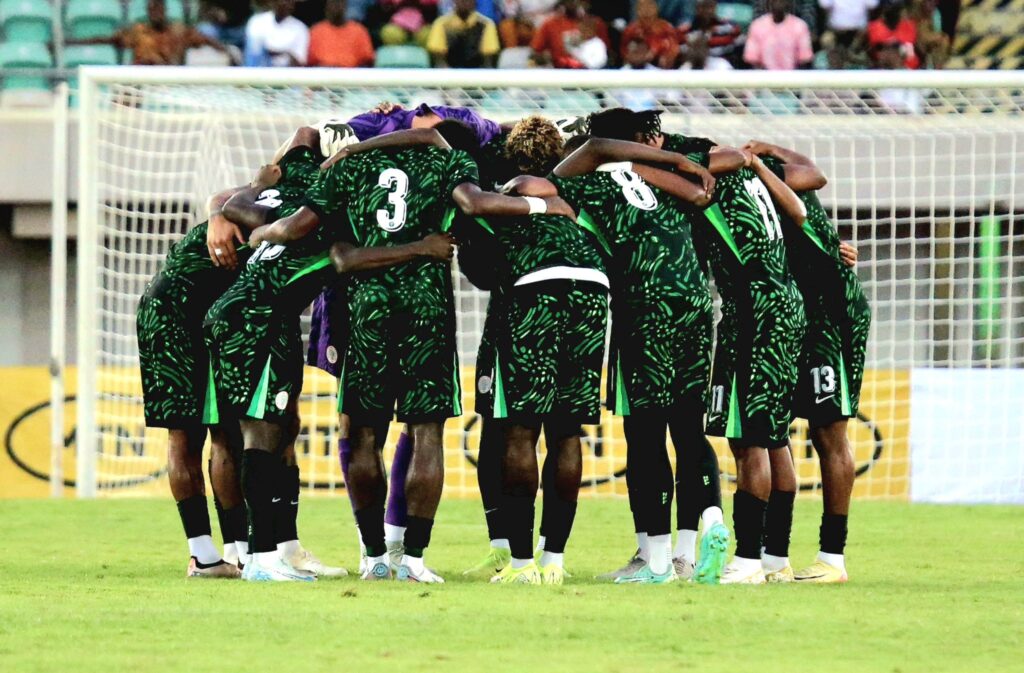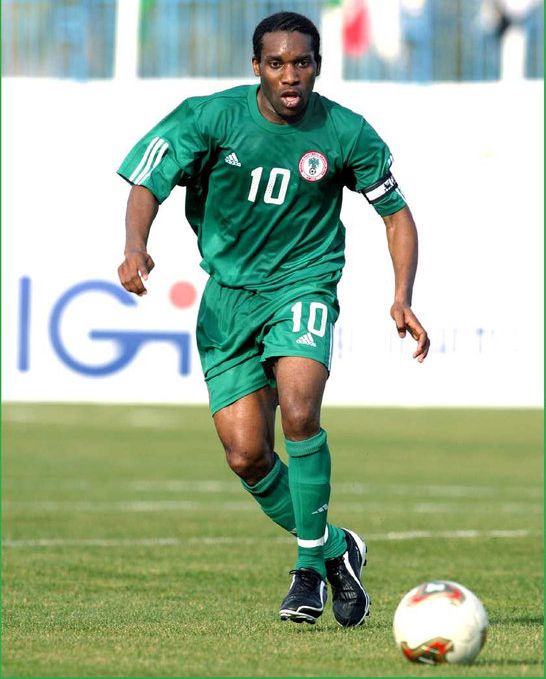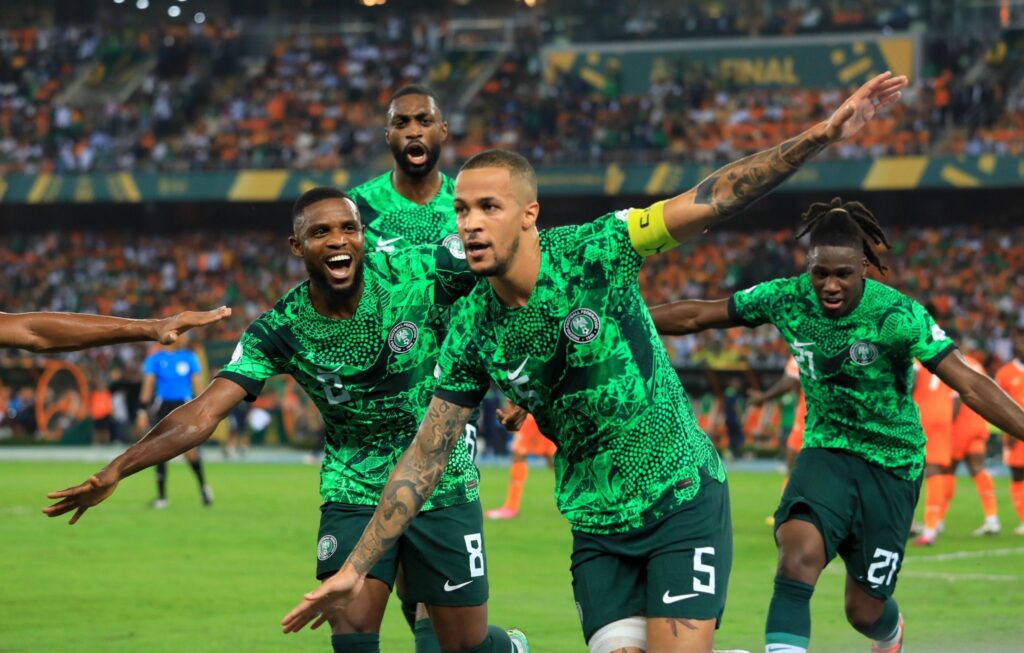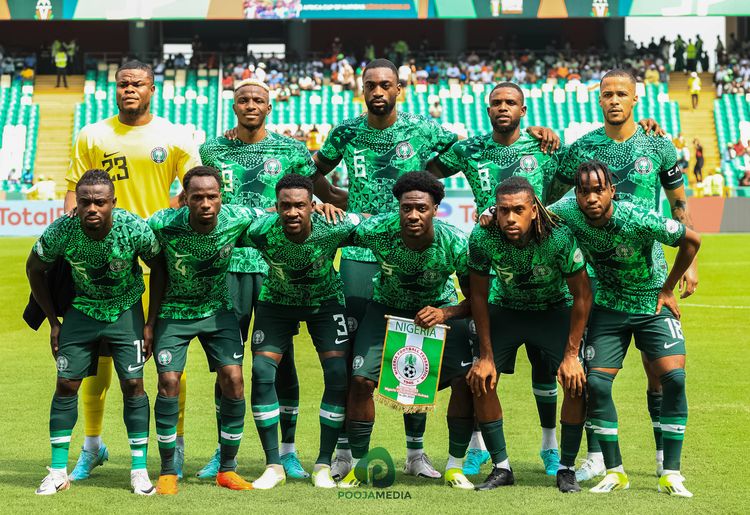By Olukayode Olumuyiwa.
The FIFA World Cup, football’s grandest stage, has seen Nigeria’s Super Eagles soar to six appearances since their debut in 1994, etching moments of pride in the nation’s history. From Rashidi Yekini’s iconic goal against Bulgaria to the thrilling upset over Spain in 1998, Nigeria has left its mark. Yet, for a country with such footballing passion, the Super Eagles have also known the sting of absence, missing the global showpiece 16 times since its inception in 1930. As Nigeria fights for a spot in the expanded 2026 tournament, we look back at their World Cup journey and spotlight the nations still waiting for their first dance under the global lights.

Nigeria’s World Cup Misses: A Tale of Near-Misses and Frustration
Since entering their first qualification campaign for the 1970 World Cup in Mexico, Nigeria has struggled to secure consistent spots in the tournament. The Super Eagles missed every edition from 1970 to 1990, a period when African football was still finding its footing globally. Despite dominating the continent—winning the Africa Cup of Nations in 1980 and 1994—Nigeria couldn’t crack the World Cup code until their golden generation arrived in the 1990s.
The 2006 tournament in Germany marked a painful setback after Nigeria’s early successes. Losses to Zimbabwe and Angola in the CAF qualifiers left fans stunned, a bitter pill for a team that had reached the round of 16 in 1994 and 1998. More recently, the 2022 Qatar World Cup delivered another gut punch. A tense playoff against Ghana ended in a 1-1 aggregate draw, but the Black Stars advanced on the away goals rule after a 0-0 stalemate in Kumasi and a 1-1 battle in Abuja. It was Nigeria’s first World Cup miss in 16 years, sparking heated debates about coaching, player selection, and the state of Nigerian football.

As of now, Nigeria’s 2026 qualification campaign hangs in the balance. Sitting third in CAF Group C behind South Africa and Benin Republic after a 1-1 draw in their last encounter. The Super Eagles face a tough road, with two rounds of matches left, a maximum of 6 points is needed while hoping other contenders slip up to secure a seventh appearance. With the tournament expanding to 48 teams, hopes are high, but the pressure is on to avoid another heartbreak.
Nigeria’s World Cup Legacy: Moments of Glory
When Nigeria has qualified, they’ve delivered unforgettable moments. In 1994, the Super Eagles topped a group with Argentina and Bulgaria, only to fall 2-1 to Italy in extra time. Four years later, they stunned Spain 3-2 in France, with Sunday Oliseh’s thunderbolt sealing a historic win. In 2014, Nigeria returned to the round of 16, their third such achievement, before a narrow 2-1 loss to France. These runs showcased stars like Jay-Jay Okocha, Kwankwo Kanu and the likes of Ahmed Musa, cementing Nigeria’s reputation as a force when they make the cut.

Yet, with only six appearances in 22 tournaments, Nigeria’s absences—1970, 1974, 1978, 1982, 1986, 1990, 2006, and 2022—tell a story of untapped potential. Each miss has fueled a national conversation about what it takes to compete consistently on the world stage.
The Global Underdogs: Nations Still Waiting
While Nigeria’s misses sting, they’re not alone in their World Cup struggles. Of FIFA’s 211 member associations, 131 have never qualified for the finals. Some are small nations with limited resources, but others are populous countries with footballing dreams thwarted by fierce competition or systemic challenges.
In Africa, 32 of CAF’s 54 members have yet to appear. Sierra Leone and Liberia, despite occasional AFCON flair, remain on the sidelines, while nations like Djibouti and Eritrea face infrastructure hurdles. Asia’s AFC has 35 non-qualifiers, including giants like India (1.43 billion people), which famously withdrew from the 1950 World Cup after qualifying, and China, whose lone 2002 appearance yielded no goals. In CONCACAF, 32 teams, including Guatemala and Nicaragua, have never broken through, overshadowed by regional powers like Mexico and the USA.
Europe, despite its football dominance, has 19 UEFA members yet to qualify. Minnows like Luxembourg (21 attempts) and Malta have tried valiantly but face a crowded field. In Oceania, New Zealand stands alone as the OFC’s only qualifier, leaving nations like Fiji and Vanuatu dreaming of a breakthrough. South America’s CONMEBOL is the exception—every member has qualified at least once, though Venezuela remains the continent’s perennial outsiders

Among the most surprising absences are populous nations like Indonesia (279 million), Bangladesh (173 million), and Vietnam (99 million), where football lags behind other sports or faces structural woes. Syria, despite 16 attempts, has been hampered by conflict, while Guatemala’s 18 tries underline CONCACAF’s competitive depth.

A New Dawn for 2026?
The 2026 World Cup, hosted across the USA, Canada, and Mexico, offers a glimmer of hope. With 48 teams and nine direct CAF slots (plus a potential 10th via playoffs), Nigeria’s chances are better than ever. But for the Super Eagles and the 131 nations still waiting, the road to glory is paved with challenges—funding, coaching, and the sheer weight of competition.
As Nigeria’s fans rally behind their team, the dream of a seventh World Cup appearance burns bright. For the global underdogs, from Luxembourg’s tiny pitches to Vietnam’s bustling stadiums, the expanded tournament could be their moment to shine. Football’s beauty lies in its unpredictability—perhaps 2026 will rewrite history for Nigeria and the world’s forgotten hopefuls.
Galaxy Sports Production
Should we send you latest update about your favourite sports and team?
Enter you email in the box below and hit the subscribe button to join our teaming 876+ sports community.
